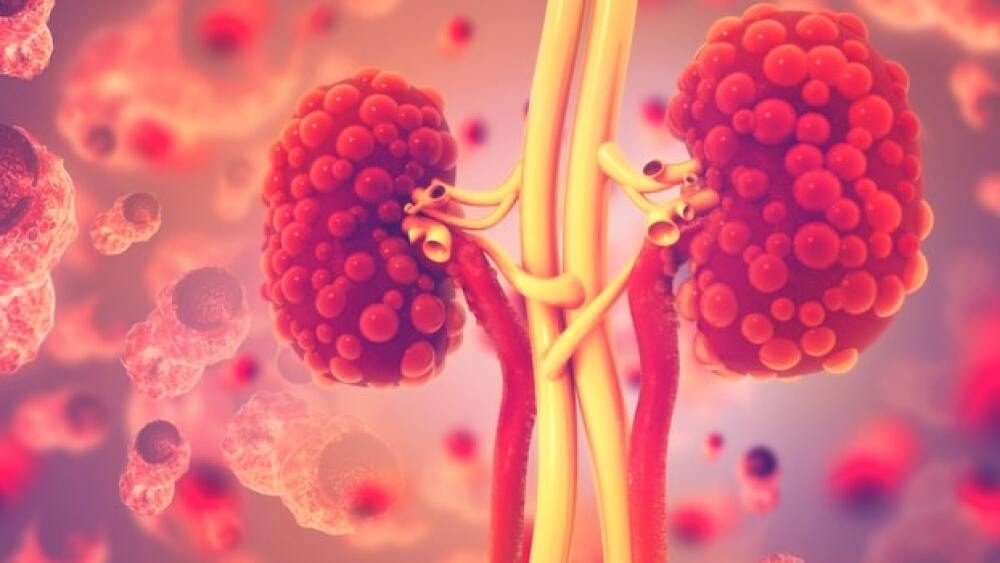AstraZeneca reported successful results from its Phase III DAPA-CKD clinical trial of Farxiga (dapagliflozin) in end stage kidney disease (ESKD).
AstraZeneca reported successful results from its Phase III DAPA-CKD clinical trial of Farxiga (dapagliflozin) in end stage kidney disease (ESKD).
The trial demonstrated a statistically significant and clinically meaningful effect on a composite of worsening of renal function or risk of death, onset of end stage kidney disease (ESKD) or cardiovascular (CV) or renal death in adults with chronic kidney disease. The trial also hit all secondary endpoints in CKD patients with or without type 2 diabetes.
The trial was an international, multi-center, randomized, double-blinded study of 4,304 patients. It evaluated the efficacy of 10 mg of Farxiga compared to placebo in patients with CKD Stages 2-4 and elevated urinary albumin excretion, with or without type 2 diabetes. Farxiga was dosed once a day in addition to standard of care.
The primary composite endpoint was worsening of renal function or risk of death, which was defined as a composite of an eGFR decline of 50% or greater, onset of ESKD and death from cardiovascular or renal cause. The secondary endpoints included the time to first occurrence of the renal composite, which was 50% or greater eGFR decline, ESKD and renal death, the composite of cardiovascular death or hHF, and death from any causes. The trial was conducted in 21 countries.
“DAPA-CKD is the first trial to demonstrate overwhelming efficacy, including improvement on survival, in chronic kidney disease patients both with and without type 2 diabetes” said Mene Pangalos, executive vice president, BioPharmaceuticals R&D for AstraZeneca. “We look forward to sharing these exciting Farxiga results with the scientific community and health authorities worldwide.”
Farxiga is a first-in-class, oral, once-daily sodium-glucose co-transporter-2 (SGLT2) inhibitor approved in adults for insufficiently controlled type 2 diabetes alone and as part of a combination therapy as adjunct to diet and exercise to improve glycemic control. It has also been shown to help with weight loss and decrease blood pressure. The DECLARE cardiovascular outcomes trial in adults with type 2 diabetes demonstrated the drug decreased the risk of a composite endpoint of hospitalization for heart failure or cardiovascular death compared to placebo when added to standard of care.
Farxiga is in a class of SGLT2 inhibitors for diabetes that includes Eli Lilly and Boehringer Ingelheim’s Jardiance and Johnson & Johnson’s Invokana. In May 2020, the U.S. Food and Drug Administration (FDA) approved Farxiga to decrease the risk of CV death and hospitalization for heart failure in adults with heart failure with reduced ejection fraction (HFrEF) with and without type 2 diabetes. It was the first SGLT2 inhibitor approved in the US to treat patients with HFrEF.
Chronic kidney disease is a serious, progressive illness that affects almost 700 million people globally. There are limited treatment options. It is also associated with patient death and an increased risk of cardiovascular events, such as heart failure and premature death.
In 2019, Farxiga brought in $1.54 billion, putting it in AstraZeneca’s top five drugs in terms of revenue.
David Wheeler, University College London. and Hiddo L. Heerspink, University Medical Center Groningen, co-chairs of the trial and its executive committee, stated, “The DAPA-CKD trial has shown dapagliflozin’s potential as a long-awaited new treatment option for patients with chronic kidney disease. The data will be transformative for these patients.”





